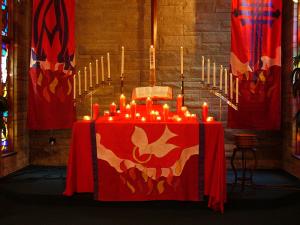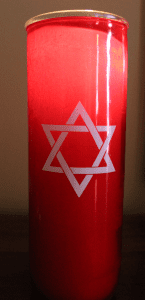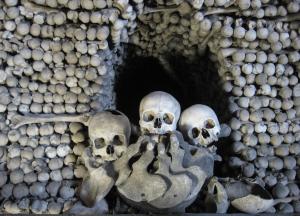 The vast majority of preachers will of course revert to Acts 2 as the basis for their Pentecost sermons, and poor old Ezekiel will fade into the background, if he appears in any sermon at all. Yet in many respects Ezekiel may be considered as the springboard or the impetus for the far more famous story from Acts where Peter exhorts the crowd to join the early Christian community in order to join the Spirit’s mighty work among the people of God. In earlier essays I have discussed the Acts passage, finding in it two painful realities that trouble me greatly. First, as are the majority of sermons in the book of Acts, it is profoundly anti-Jewish, excoriating the Jewish listeners whom Peter accuses directly and without confusion of “killing” Jesus by crucifixion (Acts 2:23), adding even after his long discussion of how David predicted all this in the Psalms that the Jewish authorities had still murdered their own Messiah (Acts 2:36). Such grotesque anti-Jewish talk surely led many in later generations to anti-Semitism and finally, monstrously, to the Shoah against Judaism perpetrated by the Nazis in the last century.
The vast majority of preachers will of course revert to Acts 2 as the basis for their Pentecost sermons, and poor old Ezekiel will fade into the background, if he appears in any sermon at all. Yet in many respects Ezekiel may be considered as the springboard or the impetus for the far more famous story from Acts where Peter exhorts the crowd to join the early Christian community in order to join the Spirit’s mighty work among the people of God. In earlier essays I have discussed the Acts passage, finding in it two painful realities that trouble me greatly. First, as are the majority of sermons in the book of Acts, it is profoundly anti-Jewish, excoriating the Jewish listeners whom Peter accuses directly and without confusion of “killing” Jesus by crucifixion (Acts 2:23), adding even after his long discussion of how David predicted all this in the Psalms that the Jewish authorities had still murdered their own Messiah (Acts 2:36). Such grotesque anti-Jewish talk surely led many in later generations to anti-Semitism and finally, monstrously, to the Shoah against Judaism perpetrated by the Nazis in the last century.
The second problem is deeply theological. The torture and murder of Jesus at the hands of the Jewish authorities was, according to Peter, “according to the definite plan and foreknowledge of God” (Acts 2:23). The word here translated “definite” in the NRSV, more literally means “to set aside” or “determine” (compare Paul’s use of the word in Romans 1:4). However we understand the term, the implication is clear: God had decided long before the events themselves that Jesus would be killed by “those outside the law,” ironically accusing the people of the Torah, the Jews, of being in reality not true followers of that Torah, but instead relegating them to the status of murderers. This idea of predestination, beloved of many Christians over the centuries, I find repugnant, since it implicates God in sadism and murder for the benefit of some larger plan, a plan that necessarily excludes the Jews, God’s own chosen people, unless they “repent” of the murder of Jesus (Acts 2:39), are baptized, and thus have their sins forgiven. This notion only compounds the horrors that have ensued between Christians and Jews through the years, making the assumption that Christians are the only ones who truly know God, while God’s initial chosen people either must repent of their “evil” or be cast aside and destroyed. No amount of Pentecost pageantry or splendor can expunge those harsh realities from the pages of history.
Thus, I turn to Ezekiel and its portrait of YHWH’s spirit enlivening the chosen ones after their defeat and near destruction at the hands of the Babylonian armies in the 6th century BCE. It is important to place Ezekiel in at least an approximate historical time if we are to capture the full import of his fantastic image of the dry bones. It has long been imagined, though the final historical proof of the matter will always be elusive, that Ezekiel was among the first exiles to Babylon in the first assault of the Babylonians against Jerusalem in 597 BCE. Apparently, there were only small skirmishes between the vast forces of Nebuchadnezzar and the Judeans in that year, leading to a deposition of the Judean king from the throne and the installation of a replacement, Zedekiah, as puppet of the Babylonians. This upheaval of Judean society was apparently accomplished with minimal bloodshed or destruction. However, certain well-known high officials of the former government were dislodged from the city and taken to Babylon. Among these deportees was the infamous prophet Ezekiel, well known for his outlandish and feverish prophetic sayings and visions. Though he may have seen little in the way of genuine warfare in 597, from his Babylonian perch he surely was told of the end of Jerusalem, how Zedekiah’s foolish rebellion in 587 BCE had failed, how the king has witnessed the murder of his family just before he was blinded and carted off to Babylon to join the earlier exiles (this grim tale is recounted in brief at 2 Kings 25).
When Ezekiel is brought by YHWH’s Spirit (the word also means “wind”) to a valley full of dry bones, the unforgettable image is reminiscent of the dry future of Judah; after the realities of big-power politics and grim warfare have had their say, surely there can be no future for a decimated Jerusalem and Judea. Thus, when YHWH asks the prophet, “Can these bones live?”, Ezekiel can only stutter, “YHWH God, only you know.” In effect, the prophet, echoing the sentiment that many of the exiles must have felt, claims that Judah’s days are gone forever and only YHWH can know what sort of future, if any, remains for them. But suddenly and amazingly YHWH commands that Ezekiel not throw in the towel, but instead do what he has been called to do: “prophesy to these bones” (Ez.37:4). I imagine that more than a few of the preachers reading this have felt precisely as Ezekiel felt: speaking to dry bones, expecting any result, is the height of absurdity. Why not accept Jesus’s later advice that on occasion, if a place will not listen to your words, then “cast off the dust from your shoes,” that is, go someplace else! Dry bones are hardly fit objects for the power of a prophet’s words.
But in this case, they are, for as Ezekiel opens his mouth to proclaim YHWH’s word, the pews full of bones begin to stir. Indeed, there is “a noise, a rattling, and the bones came together, bone to bone” (Ez.37:7). The connecting bones are then covered in turn by “sinews, flesh, and skin,” but like corpses, “there was no breath in them.” But now YHWH commands that Ezekiel “prophecy to the breath,” and in a memory of YHWH’s first act of creation in Gen.2, when faced with a little clay figure of ‘adam, Ezekiel calls “the breath from the four winds” and the breath enters into the slain corpses, “and they lived, and stood on their feet, a vast multitude” (Ez.37:10). Rather than allow his hearers and readers to misconstrue what they have just heard and read, Ezekiel immediately adds the meaning of his vision.
YHWH makes it plain: “Mortal, these bones are the whole house of Israel,” those who have said ‘Our bones are dried up, our hope is lost; we are cut off completely'” (Ez.37:11). Not so, says YHWH! “I am about to open your graves, and I will bring you back to the land of Israel” (Ez.37:12). And God’s sermon ends with this promise: “I will put my spirit within you, and you shall live, and I will put you on your own soil; then you will know that I, YHWH, have spoken and will act” (Ez.37:13-14). Ezekiel is obviously not speaking of some kind of latter day resurrection.The vision is one of a definite historical future for the defeated and exiled Judeans. Now there is a Pentecost word worthy of proclamation!
Frederick Blechner in his marvelous historical fiction, Godric, has the ancient heroic worthy say as he approaches death, “All the death there is, set next to life, would scarcely fill a cup.” That is the promise of Easter. That is the promise of Pentecost’s gift of the Spirit of God. That is the essence of the Christian faith. Our God is the life-giver, the Spirit provider, the one who will simply never leave us nor forsake us. Happy Pentecost! The community of God was hardly begun by Peter’s sermon; the community of God is and always has been rooted in the work of God from the foundation of the world. Ezekiel’s dry bones is merely one more example of that fact.
(Images from Wikimedia Commons)











